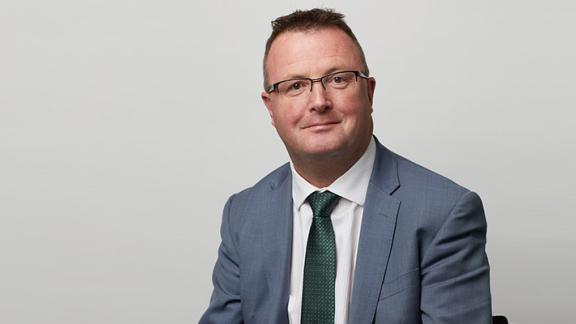When is the government going to fix the COVID-19 pandemic’s mental health crisis?

While there is little doubt about how to meet demand for mental health services, and the knowledge this needs to happen consistently, across the country and be adequately funded, there is incredulity that the government hasn't drawn up plans to tackle our probable next pandemic - the state of the country's mental health.
Demand is mounting within mental health services. The backlog is growing, and more people are becoming more unwell while services become busier, estates continue to deteriorate, and the workforce stretches further to meet demand. So why are we yet to see a comprehensive plan from government to tackle what we know could fast become the next pandemic?
In the last two years life has changed, there is no doubt about that. We now often talk in terms of pre- and post-pandemic, pre-pandemic being the ‘before’ to an ‘after’ that has visited lockdown, loneliness, bereavement, and latterly huge financial strain on our society, disproportionately impacting the most vulnerable and putting enormous pressure on our collective mental wellbeing.
...completing an urgent pathway for eating disorders has increased by 72 per cent in the past two years
While the full impact of living through the past couple of years remains to be seen, it is already possible to quantify some of the effects on those experiencing mental ill-health. Services report a steep increase, not only in the numbers of people presenting but also in the severity of their conditions.
Perhaps the starkest figures are those coming through from children and young people services where the number of young people completing an urgent pathway for eating disorders has increased by 72 per cent in the past two years.
Looking back to ‘before’, the pre-pandemic focus was on the transformation of mental health services in line with government policy such as the NHS Long Term Plan, which aimed to improve access to high-quality care, and encourage services to integrate. This saw the piloting and roll out of community mental health teams, leading to improved access to mental health support for adults.
Digital services have provided innovative solutions during the height of the pandemic, now they need to be consistently funded across the country
There is little doubt among our members about what will work when it comes to meeting demand
Mental Health Support Teams (MHSTs) were also rolled out to provide targeted support within schools. The first MHSTs were set up in 2018; these services have increased service capacity and provide easier access to mental health services for children and young people, but the current package of funding has only been confirmed to cover 35 per cent of schools by 2023.
There is little doubt among our members about what will work when it comes to meeting demand, indeed this is already happening in some places. Digital services, including those provided by our members Kooth and Healios, and voluntary sector services, such as Place2Be, Mind, and Rethink Mental Illness, are currently providing additional capacity in many areas of the country, but this needs to happen consistently and be commissioned across the country and adequately funded.
Having seen the obvious potential for expanding these proven solutions, it is surprising then that the NHS Elective Recovery Plan sets out how the backlog of people needing planned surgical procedures will be addressed, but that the government has offered no similar strategy to strengthen mental health services.
Financial stimulus is key, although more still needs to be done in workforce planning
Of the £44 billion of additional funding allocated for the NHS...none was specifically identified for mental health
And of the £44 billion of additional funding allocated for the NHS in the government’s Spending Review last year, including £5.9 billion to tackle the elective care backlog, none was specifically identified for mental health.
This is despite the government having committed to increase the proportion of planned spending on mental health services every year.
Also, of the 48 new ‘hospitals’ that the government has promised to build by 2030, 40 projects have been announced so far and of these, only two are for mental healthcare.
While the mental health workforce has increased in line with targets set for 2021, the number of key staffing groups such as mental health nurses and consultant psychiatrists has not with only 38 per cent of the target numbers in post.
What we need is further investment to provide increased, and earlier, access to services for those that need it, backed up by a national long-term, fully-funded plan for expanding the mental health workforce that is aligned and integrated with ICS workforce plans.
The pandemic has profoundly affected our health as a society and it has also impacted upon our relationships, finances and living conditions, and just as the scale of the problem stretched far beyond health, so does the potential for developing solutions.
Sean Duggan is chief executive of the Mental Health Network. Follow them on Twitter @SeanDugganMHN and @NHSConfed_MHN
This blog was first published in Mental Health Today on 8 March 2022.



